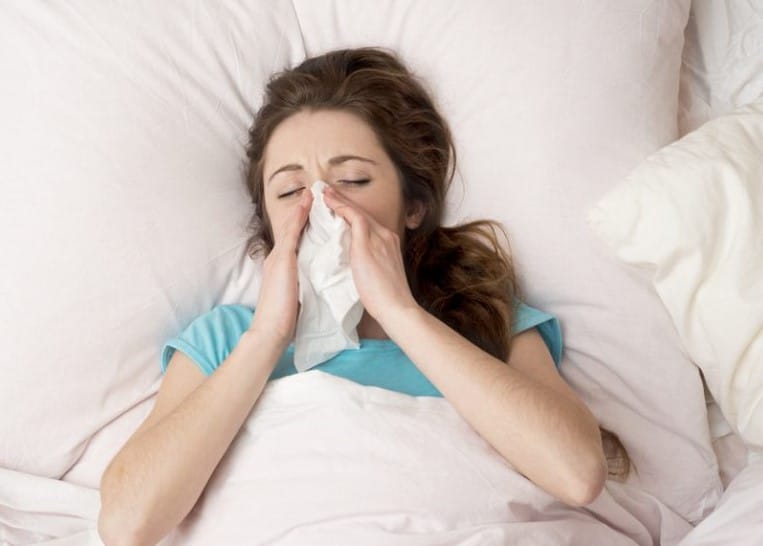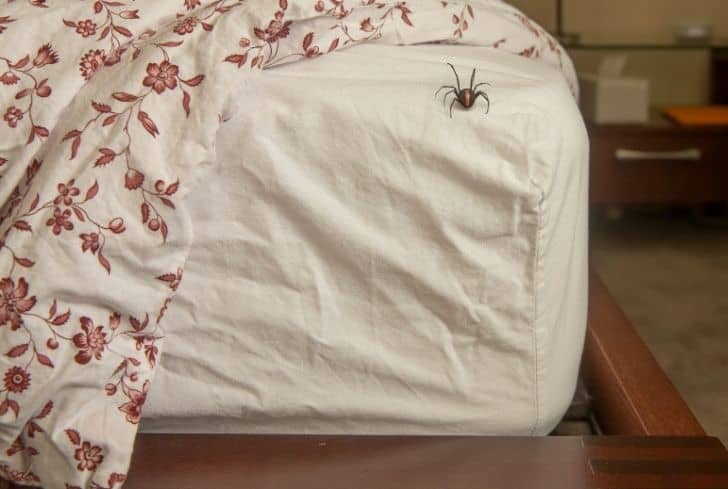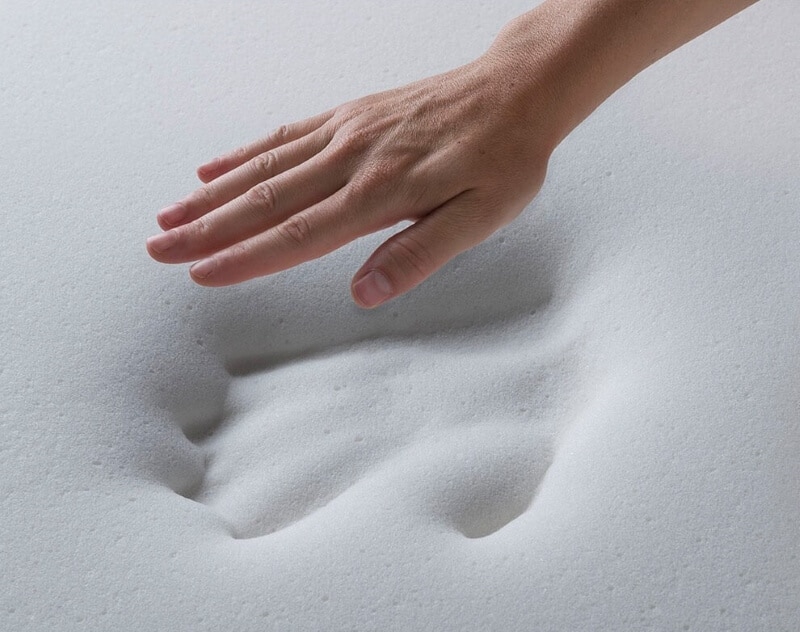

There are several reasons why people take showers before bed. A cold shower before bed is believed to cool you down on a warm night, making it easier to fall asleep. A hot shower has the opposite effect, heating your body on a winter night to help you get cozy beneath your blankets.
There are some benefits to either of these options but they may not be the right ones to help us sleep better. We also may not be taking our showers at the right time, so those benefits may not even come into effect until well after we crawled into bed.
If you’ve considered taking a cold shower before bed but aren’t sure if it’s the right thing to do, we may be able to help. The information provided below details all the benefits of cold showers before bed and whether they are right for you.
Though most of us have likely heard the term core body temperature before, we don’t always know exactly what this refers to. We know that our bodies are supposed to be at about 98.6 degrees Fahrenheit to be healthy and going above this means we have a fever.
What we don’t know is that our core temperature Trusted Source What is core temperature? How is it measured? - ONiO Let’s face it. Most of us don’t really think about our body temperature unless we’re having a fever. www.onio.com refers to the internal temperature of our bodies, namely what our organ’s temperature is. These organs, like the liver and kidney, actually fluctuate in their temperature. This range is between 97.7 and 101.3 degrees Fahrenheit, so a small change isn’t going to affect our health in any way.
It is larger changes in the core temperature that causes hypothermia when we are too cold and hyperthermia when we’re too hot. When our body’s core temperature drops below 92.3 degrees F or rises above 106.7 degrees, we’ll experience reduced functions that could lead to cellular damage and eventually death if left untreated.
Of course, unless you’re immersing yourself in very hot or cold water, you likely won’t experience these issues from baths or showers before bed. The limited amount of time you spend in the water won’t have such horrific effects on your body but there are some more minor changes that you may want to consider, especially if you’re taking your showers right before bed.
Our bodies have an internal clock called the circadian rhythm, which includes little silent alarms that tell us when to wake up, eat, and go to sleep. It also controls your bodily functions and affects your hormone levels.
When your body is ready for sleep, the circadian rhythm sends signals to our body, one of which is to lower our body’s core temperature by a degree. This cools us down to help us sleep better, plus it slows down our internal functions for a better night’s rest.
When we take a cold shower, we’re likely doing so to speed up the body’s natural processes, speeding up the cooling function. There are some other benefits Trusted Source The Effect of Cold Showering on Health and Work: A Randomized Controlled Trial Between January and March 2015, 3018 participants between 18 and 65 years without severe comorbidity and no routine experience of cold showering were randomized (1:1:1:1) to a (hot-to-) cold shower for 30, 60, 90 seconds or a control group during 30 consecutive days followed by 60 days of showering cold at their own discretion for the intervention groups. www.ncbi.nlm.nih.gov as well that you may not be aware of.
After your cold shower, your body will try to warm itself up. Your metabolism increases, which then activates your immune system, resulting in higher production of white blood cells. These are important to fight off bacteria and viruses, fending them off and preventing illnesses. The higher metabolism stimulates the creation of brown fat cells to keep you warm, which burns more calories and helps shed those extra pounds.
Cold water also keeps you alert. This isn’t a good thing for those stepping out of the shower and jumping into bed but it does have some benefits. That quick burst of energy will help you finish any tasks you still have to do before bed, ensuring a calm mind when you finally lay down to sleep.
Cold showers activate our sympathetic nervous system, releasing noradrenaline and beta-endorphins in our brains. These are natural antidepressants, making you feel good and relaxing your mind, which can help you fall asleep faster. You’ll also be so focused on warming up from the cold water that those stressful moments of your day will be forgotten.
Your skin and hair can even benefit from cold showers. The cold water will constrict your blood vessels, tighten your pores, and boost your circulation. The results include less puffiness and redness for a healthy, natural glow. It locks moisture in your hair as well for less breakage and flat cuticles. This invigorates your hair while keeping it on your head where it belongs.
All of those cold water benefits sound great but there is a downside to them if you’re taking a cold shower before bed. The last thing you want when settling between the sheets is a shaking body and an alert mind. That’s why it is important to take a cold shower at the right time.
All of those benefits make cold showers a wonderful part of a morning routine to get your day started right. If you prefer to shower at night, it may be best to do so an hour or two before bed to obtain those benefits without negatively affecting on your sleep.
You should also keep in mind that lowering your body’s temperature will activate its reflex to raise it back up again to where it’s supposed to be. This rapid heating won’t keep you cool for long, so if this is the only reason you’re taking a cold shower before bed, you may want to rethink this strategy.
Just like with cold showers, there are several benefits to taking hot showers before bed. Heat is known to relieve muscle tension and soreness, so if you’re dealing with pain or swelling, this is the way to go. This relaxing benefit also helps reduce tightness in your body from stress and anxiety in your mind. This lack of anxiety can even improve your problem-solving capabilities.
A hot bath will even go further in relaxing your muscles and calming your mind. Especially if you add some calming bath salt to it, like one of these from Village Naturals Therapy.
Anyone with frequent migraines may also want to consider hot showers. The warm water will increase circulation and relax your body, helping relieve the pressure in your head. The faster blood flow will help any medications you’ve taken kick in for quicker pain relief.
Hot showers are a great option for those suffering from a cold. The heat from the water and the steam it creates can open up your nasal passages, clearing out your sinuses. This makes it much easier to breathe, which can help improve your sleep.
Your internal functions aren’t the only parts that benefit from hot showers. The oil, dirt, bacteria, and anything else on your skin can be cleaned off much easier with hot water than with cold water, getting rid of those impurities. The heat also opens up your pores, washing away anything that has collected in them. This prevents acne from forming for clear skin.
Like cold showers, there is some
evidence
Trusted Source
Before-bedtime passive body heating by warm shower or bath to improve sleep: A systematic review and meta-analysis - ScienceDirect
Water-based passive body heating (PBHWB) as a warm shower or bath before bedtime is often recommended as a simple means of improving sleep.
www.sciencedirect.com
that timing is something to consider when taking your hot showers before bed. Doing so an hour or two before you sleep is recommended for the best results.
Despite all the benefits we’ve listed, you still may not be sure whether a hot or cold shower before bed is best. This all depends on the issues you’re dealing with. Hot showers help relax and soothe your body, so if you’re feeling tense or sore, this is likely the right option. Anyone dealing with depression, anxiety, or a slow metabolism may have more reasons to choose a cold shower.
There is also another alternative, which is to stay in the middle range of water temperature. A warm or cool shower can give you the best of both options, releasing tension, slowing your heart rate, soothing your muscles, and reducing anxiety.
Those who live in warm or hot climates or are hot sleepers may only be thinking of how cool they will be when they lay down after a cold shower. Having the right mattress is a more effective alternative since these will keep you cool all night instead of briefly before you lay down.
There is a wide variety of cooling mattresses available, many of which include cooling gel memory foam or other airflow designs. The Idle Mattress is a good option, with cooling gel layers for a more long-term solution than taking a cold shower before bed. There are also latex mattresses available with breathable, ventilated layers that release heat during the night.
How well we sleep affects how we function throughout our day. This makes our comfort level during the night extremely important. Hot sleepers and high temperatures outside can affect this, which is why taking a cold shower before bed seems like such a good idea. Though there are some fantastic benefits to this, cold showers can also make us more alert and stimulate us in ways that counter sleep, especially when the shower happens too close to bedtime.
That’s why it is best to take a cold shower an hour or two before it’s time to sleep, so you still get the benefits without keeping you awake when you finally climb into bed. If you’ve missed this window of opportunity, it may be best to stick with warm or cool showers. This way, you’ll still get the benefits without sacrificing sleep.





